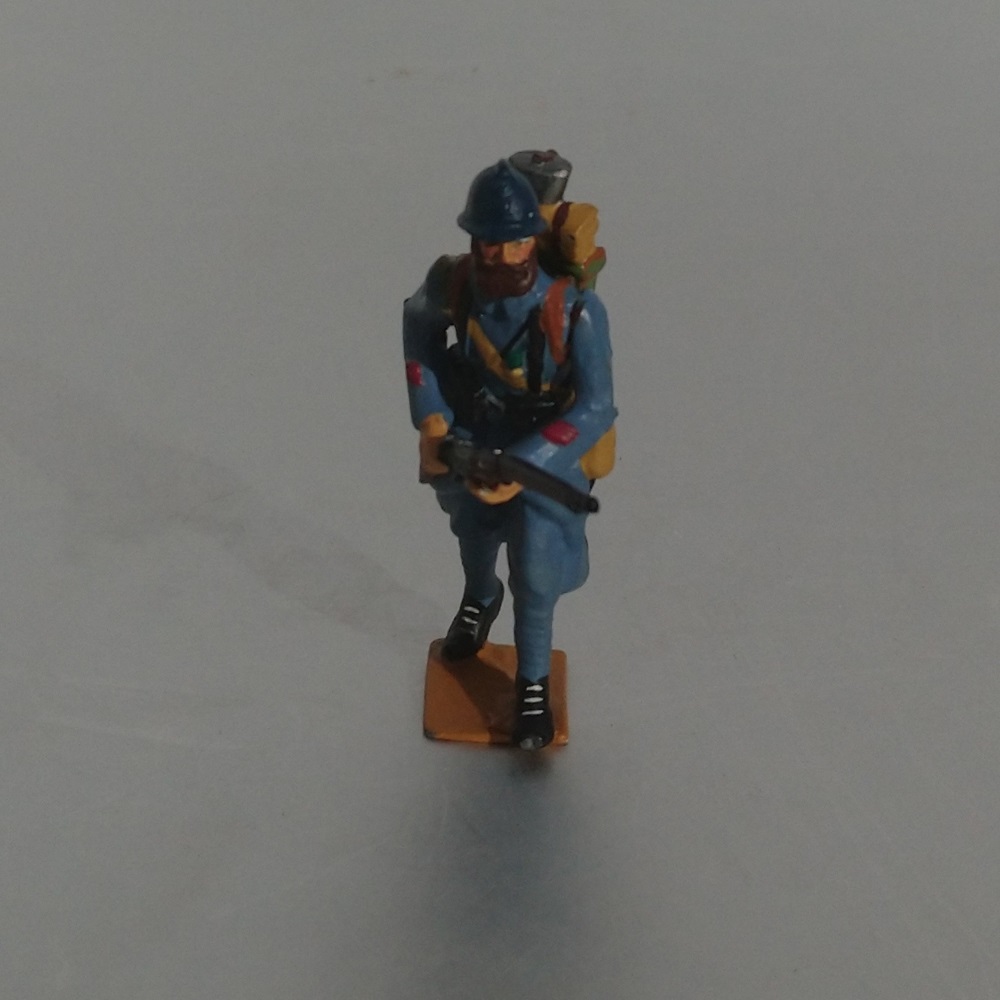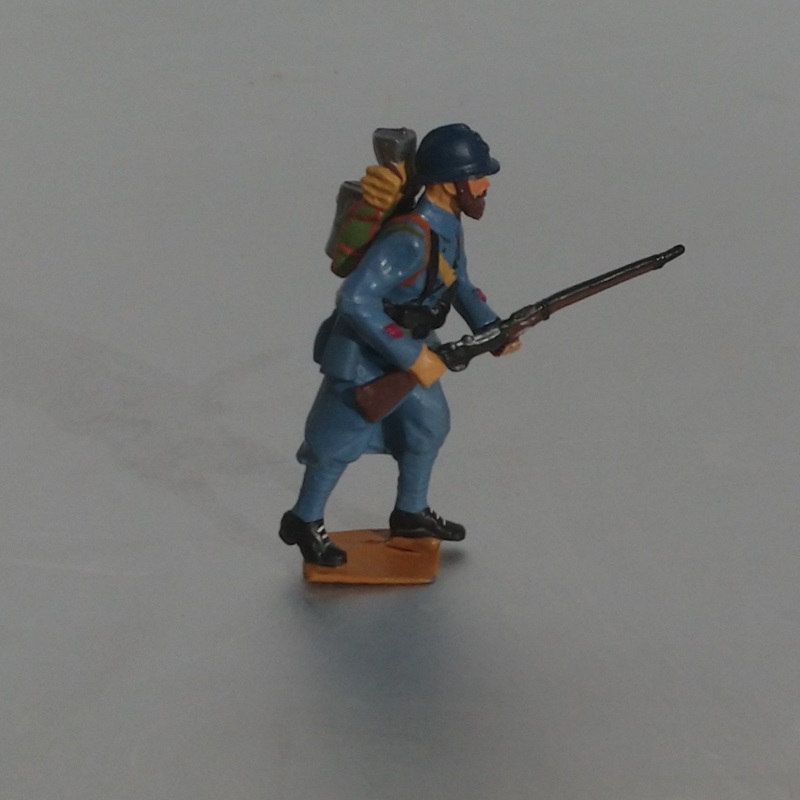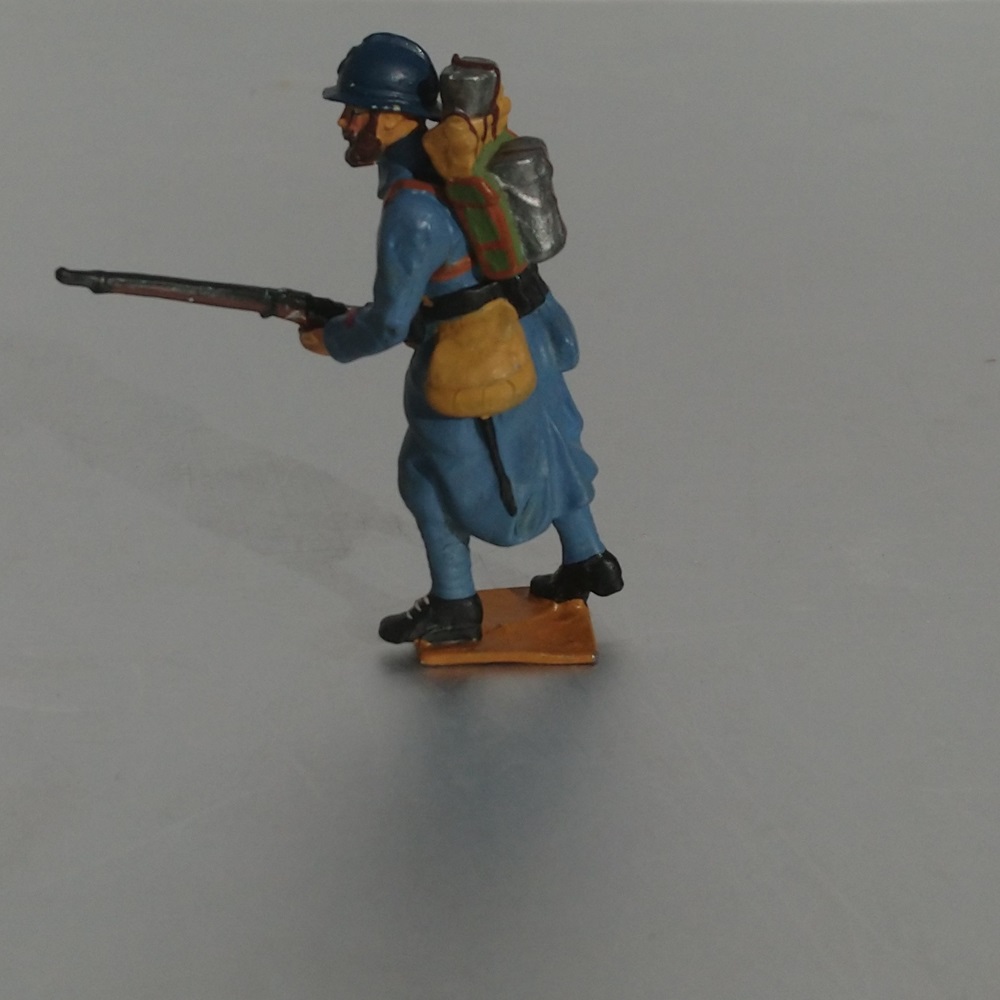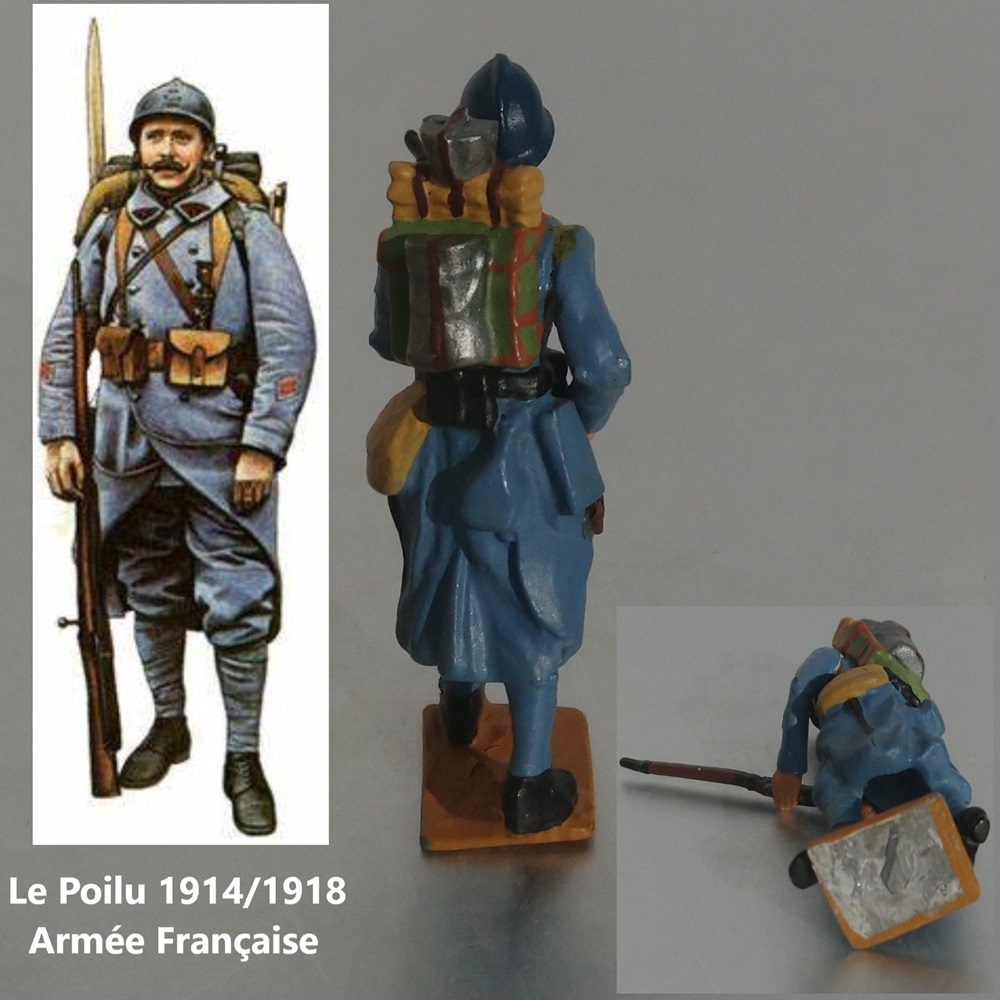




Soldat de plomb d'un Poilu de l'armée Française durant la 1ère guerre mondiale (1914 - 1918) - Lead soldier of a Poilu from the French army during World War I (1914 - 1918)
19.00 €
Référence : 24-00096
Soldat de plomb Poilu
Dimensions :Hauteur : 5,8 cm
largeur (fusil compris) : 5 cm
Bon état.
Soldat de plomb représentant un Poilu de l'armée Française durant la 1ère guerre mondiale (1914 - 1918).
Le Poilu était le surnom donné aux soldats Français de la 1ère guerre mondiale qui combattaient dans les tranchées.
Jadis en argot, ce mot "poilu" qualifiait quelqu'un de courageux et les expressions françaises telles que "avoir du poil", "avoir du poil aux yeux", "qui a du poil au ventre", désignaient un homme qui avait du poil et pas dans sa main.
Le soldat combattant qui défendait son sol, par opposition à l'embusqué, a été appelé "poilu" et ce mot a fait irruption dans le langage populaire.
Au début, les figurines représentant des soldats étaient en étain et servaient à apprendre l'art de la guerre aux officiers. En 1760, en Allemagne, dans les villes de Nuremberg et Furth renommées pour leurs fonderies, naquit le soldat dit "plat d'étain" qui était une figurine plate et gravée des 2 côtés. Ces pièces éducatives ont été transformées pour devenir des jouets. Aujourd'hui, le soldat en plastique a remplacé le soldat en plomb qui reste prisé chez les collectionneurs.
En mémoire à tous nos soldats Français !
 Click to translate into English
Click to translate into English
(Cliquez pour traduire en anglais)
Hairy Tin soldier
Tin soldier representing a Poilu of the French army during the 1st World War (1914 - 1918).
The Poilu was the nickname given to the French soldiers of the 1st World War who fought in the trenches.
Formerly in slang, this word "poilu" qualified someone brave and French expressions such as "avoir du poil", "avoir du poil aux yeux", "qui a du poil au ventre", referred to a man who had hair and not in his hand.
The soldier fighting who defended his soil, as opposed to the ambush, was called "poilu" and this word burst into popular language.
In the beginning, the figurines representing soldiers were made of pewter and were used to teach the art of war to officers. In 1760, in Germany, in the cities of Nuremberg and Furth, renowned for their foundries, the soldier known as the "pewter dish" was born, which was a flat figurine engraved on both sides. These educational pieces have been transformed into toys. Today, the plastic soldier has replaced the lead soldier that remains prized by collectors.
Size :
Height : 5.8 cm
width (rifle included) : 5 cm
Good condition.
In memory of all our French soldiers !
Tin soldier representing a Poilu of the French army during the 1st World War (1914 - 1918).
The Poilu was the nickname given to the French soldiers of the 1st World War who fought in the trenches.
Formerly in slang, this word "poilu" qualified someone brave and French expressions such as "avoir du poil", "avoir du poil aux yeux", "qui a du poil au ventre", referred to a man who had hair and not in his hand.
The soldier fighting who defended his soil, as opposed to the ambush, was called "poilu" and this word burst into popular language.
In the beginning, the figurines representing soldiers were made of pewter and were used to teach the art of war to officers. In 1760, in Germany, in the cities of Nuremberg and Furth, renowned for their foundries, the soldier known as the "pewter dish" was born, which was a flat figurine engraved on both sides. These educational pieces have been transformed into toys. Today, the plastic soldier has replaced the lead soldier that remains prized by collectors.
Size :
Height : 5.8 cm
width (rifle included) : 5 cm
Good condition.
In memory of all our French soldiers !



